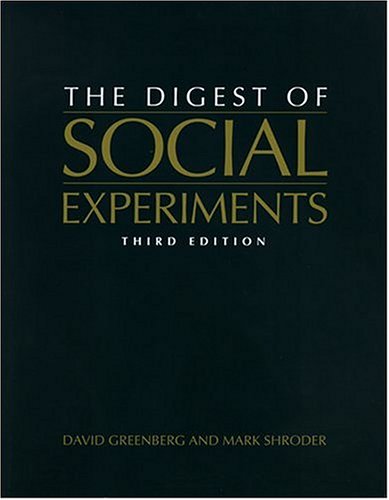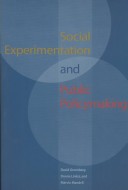Urban Institute Press
2 total works
Social experiments provide the most reliable guide to potential impacts of policy change because their methodology allows analysts to isolate the effect of the policy change from other, potentially distorting factors. This revised and updated edition of the Digest of Social Experiments documents 240 completed and 21 ongoing social experiments. In addition to the findings, each summary details target populations, policies tested, experimental designs and related issues, sites, key staff, sources of further information, and public access to the data. The authors also discuss the theory and practice of social experimentation, the reasons for conducting social experiments, the ethical issues, and non-experimental methodologies that have been proposed as substitutes. They examine the uses of social experiments in the policy process, and offer a brief history of social experimentation.
Social Experimentation and Public Policy
by David H. Greenberg, Donna Linksz, and Marvin Mandell
Published 7 July 2003
Social experiments use random assignment to measure the market or fiscal outcomes of policy interventions. Since the 1960s, they have become the major method for evaluating proposed changes in social programs. To judge the social gains of these experiments, policymakers, funders of experiments, the public, and those who conduct social experiments need realistic standards and expectations for judging.Social Experimentation and Public Policymaking advances that effort with a history of social experimentation and a theoretical framework for study of its techniques. The authors analyze five of the most prominent social experiments ever conducted, to explore their origins, the use of the resulting findings, and factors that influenced the use of the findings. The result is a comprehensive examination of the effectiveness of social experimentation and important insights into how this powerful tool can be used to improve public policy.

